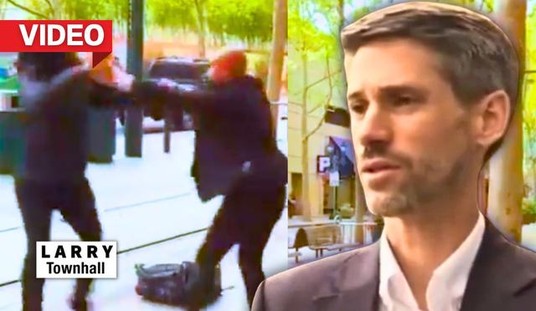How odd that when the president's largest corporate donor, Goldman Sachs, gets indicted, it is seen in the wonderful world of Washington as catalyzing his efforts to modify Wall Street regulation. Goldman's employees, of course, gave Barack Obama just shy of $1 million, a total only exceeded by the faculty and staff at the University of California, making them the second-largest bundle of donors to the Obama campaign.
There are so many reasons to oppose Obama's financial regulation bill.
Some Republicans have focused on the fact that it sets up a TARP II fund that starts the bidding at $50 billion. In making such an offer to back up firms that are too big to fail, the bill guarantees:

-- The big firms will feel free to make whatever risky bets they can get away with since their downside (i.e., backside) is covered.
-- The bigger firms eclipse the smaller ones (as Fannie Mae and Freddie Mac did to the mortgage industry) because of their implicit federal guarantee.
-- More firms crowd to get under the $50 billion umbrella, and it expands into an even-larger bailout.
Other Republicans correctly complain about the power the treasury secretary is given under the bill to seize any financial institution that he deems too big to fail and that he thinks is at risk of insolvency. They rightly worry about the constraint this provision imposes on business growth and the dictatorial powers it gives the administration to fire management, replace directors, liquidate stock value and sell off parts of the companies it seizes.
But we also need to worry about how the power to seize on the one hand and bail out on the other will be used by this administration. Already, we have seen how Obama and Timothy Geithner did not hesitate to throw their regulatory weight around to force bondholders to take a pittance in very partial repayment of their loans to General Motors. We can imagine how much political clout these new powers will give to Obama.
Recommended
With PACs and bundling by financial firms play an ever larger part in campaign finance and issue advocacy advertising? Will any large financial institution feel free to let its executives work against Obama's re-election? Will they not worry that he could take them over in a twinkling of an eye? Or will they be so anxious to come in out of the rain of competition to nestle under the bailout umbrella that they won't want to risk antagonizing Obama?
Particularly after the Citizens United case, anything that inhibits corporations from participating politically limits political debate and slants it toward the administration. In the very debate now underway, are financial corporations not already pulling their punches so as not to alienate a president whose hand can feed them or seize them as he wishes?
Yes, George W. Bush acquired vast new powers for the executive branch of government in the Patriot Act and the war on terror. But there is no record of his intentionally misusing them to intimidate political opponents. But Obama has a more ruthless mind. His war on Fox News shows how this thin-skinned president keeps track and takes names. We can well imagine a Nixonian enemies list of financial institutions earmarked for special regulation and intensive oversight -- not for their economic performance, but for their political views.
Let's remember the days of JFK phoning steel company executives to force a rollback in their price increases, while Attorney General Bobby Kennedy threatened increased antitrust scrutiny. Equipped with the powers about to be conferred in the financial regulation bill, such government tyranny could be even more dangerous.
Some seem willing to confer these powers if only a bankruptcy judge signs off on the takeovers and seizures. But the administration, which appoints the judges in the first place, can shop for a compliant one like a prosecutor looking for a jurist to issue a search warrant.
Fidel Castro and Hugo Chavez could only marvel at giving the government such powers.






















Join the conversation as a VIP Member